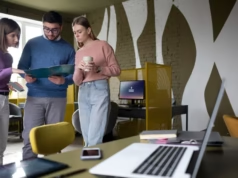A scrap car in Brisbane follows a clear, multi-stage journey from being parked in a driveway to being transformed into reusable materials at a recycling yard. This process includes collection, assessment, depollution, dismantling, and material recovery, ensuring value extraction and environmental responsibility.
Understanding each step helps vehicle owners know what to expect and appreciate the impact this process has on both the economy and the environment.
1. The Starting Point – Selling the Scrap Car
The journey begins when a vehicle owner contacts a licensed scrap car buyer. In Brisbane, services such as Metal Biz Recyclers offer to purchase unwanted vehicles, including examples like accident-damaged utes, non-running sedans, or rusted 4WDs.
Key Features of Scrap Car Collection Services:
| Feature | Example |
|---|---|
| Free Collection | Pick-up from homes, businesses, or roadside |
| All Makes Accepted | Toyota Hilux, Ford Falcon, Holden Commodore |
| Same-Day Service | Collection arranged within hours |
| Instant Payment | On-the-spot cash or bank transfer |
This step removes the vehicle from the property and initiates its entry into the recycling process.
2. Vehicle Assessment – Determining Recyclable Value
To determine how much value can be recovered, the vehicle is inspected by trained assessors. This inspection identifies reusable components, recyclable metals, and the overall condition of the car.
| Attribute Checked | Purpose |
|---|---|
| Make, Model & Year | Determines demand for parts |
| Condition of Engine & Transmission | Potential for resale |
| Metal Composition | Estimates scrap metal weight |
| Damage Extent | Impacts dismantling process |
Example: A 2010 Mazda 6 with a blown engine may still have valuable doors, panels, alloy wheels, and electronic components worth salvaging.
3. Transport to the Recycling Yard
Once assessed, the vehicle is loaded onto a tilt-tray or tow truck and transported to a licensed recycling facility. Brisbane recycling yards operate under Queensland environmental regulations, ensuring safe handling.
Situational relevance: This stage is especially important for owners who have cars that cannot be driven legally due to expired registration, severe damage, or mechanical failure.
4. Depollution – Removing Hazardous Materials
Depollution is the first technical step at the yard. All hazardous fluids and components are safely removed to prevent environmental contamination.
| Hazardous Material | Where Found | Disposal or Recycling Outcome |
|---|---|---|
| Engine Oil | Engine | Re-refined into industrial lubricants |
| Coolant | Radiator | Processed for reuse or safe disposal |
| Brake Fluid | Brake System | Neutralised and disposed |
| Petrol/Diesel | Fuel Tank | Used as industrial fuel |
| Airbags | Safety Systems | Safely deployed and recycled |
Removing these materials ensures compliance with environmental standards and workplace safety.
5. Dismantling – Salvaging Reusable Parts
After depollution, the dismantling process begins. Skilled technicians remove parts that can be refurbished and resold.
Commonly Salvaged Parts in Brisbane:
- Engines and Gearboxes – refurbished for resale in local and export markets.
- Body Panels – doors, bonnets, and boot lids reused in vehicle repairs.
- Electrical Components – alternators, starter motors, and control modules.
- Tyres and Rims – resold if in good condition, or recycled into crumb rubber.
Example: A Holden Commodore with collision damage may still have an intact engine and alloy wheels, which are in high demand.
6. Metal Recycling – Turning Car Bodies into Raw Material
Once reusable parts are removed, the remaining car shell is prepared for metal recycling. The body is crushed or shredded, then separated into different metal types using industrial magnets and separation equipment.
| Metal Type | Common Source in Cars | New Use After Recycling |
|---|---|---|
| Steel | Chassis, panels | Construction beams, appliances |
| Aluminium | Engine blocks, wheels | Car parts, beverage cans |
| Copper | Wiring, alternators | Electrical cables |
Recycled metals from Brisbane yards often supply both local manufacturers and overseas markets.
7. Recovering Non-Metal Materials
Modern vehicles contain materials beyond metals, and recycling yards recover as much as possible.
Examples of Non-Metal Recovery:
- Glass – windscreens and windows processed into new glass products.
- Plastics – dashboards, bumpers, and trims converted into industrial plastic pellets.
- Rubber – tyres shredded for road surfacing or sports fields.
By recovering these materials, recycling facilities reduce landfill waste and conserve natural resources.
8. Environmental Impact of Scrap Car Recycling in Brisbane
Recycling scrap cars reduces the need for new raw materials and prevents environmental harm from abandoned or dumped vehicles.
| Environmental Benefit | Specific Impact |
|---|---|
| Resource Conservation | 1 tonne of recycled steel saves 1.1 tonnes of iron ore |
| Energy Savings | Aluminium recycling uses 95% less energy than mining |
| Waste Reduction | Over 85% of a car’s components are reused or recycled |
This makes scrap car recycling a significant contributor to Brisbane’s environmental sustainability goals.
9. Pros and Cons of Recycling a Scrap Car
| Pros | Cons |
|---|---|
| Financial return for unwanted cars | Market price depends on global scrap rates |
| Space freed at home or business | Limited return for vehicles with minimal metal |
| Environmental benefits | Some vehicles hold sentimental value |
| Compliance with legal disposal requirements | Requires ownership proof before sale |
10. Target Audience for Scrap Car Recycling Services
Scrap car recycling is relevant to:
| Audience | Why Relevant | Example |
|---|---|---|
| Private Owners | Remove old/damaged cars for cash in Brisbane | Retired sedan in a driveway |
| Fleet Managers | Upgrade to newer, fuel-efficient models | Company replacing 10 work utes |
| Mechanics | Source affordable parts for repairs | Repairing discontinued models |
| Insurance Firms | Dispose of total loss vehicles | Wrecked cars from accident claims |
11. Situations Where Recycling Is the Best Option
Selling to a recycling yard is the most suitable option when:
- Repair costs exceed vehicle value.
- Roadworthy repairs are uneconomical.
- The car has been in a major accident.
- The owner wants quick removal without private selling delays.
Example: A Brisbane resident with a hail-damaged SUV that failed its roadworthy inspection can recover value by selling it to a recycling yard instead of paying for expensive repairs.
Conclusion – A Responsible End for Scrap Cars
From the moment a scrap car leaves a driveway in Brisbane, it begins a process designed to extract maximum value, recover reusable parts, and recycle materials in an environmentally safe way. This journey benefits the seller financially, supports the local recycling industry, and reduces environmental impact.
For vehicle owners, choosing a licensed recycling service such as Metal Biz Recyclers ensures compliance with Queensland regulations while giving unwanted cars a new purpose in the manufacturing cycle.







